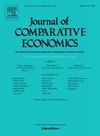Minor monarchs: The ‘Bad-Emperor’ problem in Chinese history
IF 2.8
2区 经济学
Q1 ECONOMICS
引用次数: 0
Abstract
How important is the age and experience of political leaders for the quality of governance? I explore this question in the context of imperial China, where autocratic rule centered on the institution of the emperor persisted for nearly 2,000 years. While the issue of child emperors is frequently discussed in the historiography of China, the impact of minor rulers has not been explored empirically. Using rich biographical information on the lives of rulers, I show evidence consistent with the notion that the age of emperors mattered for the effective administration of the Chinese state. In particular, the incidences of minor monarchs appear to accelerate the decline of a dynasty and occur more frequently toward the end of an imperial dynasty. The rule of minor monarchs coincides with the timing of dynastic crises, nomadic attacks, peasant revolts, and declines in fiscal capacity. To assess causality, I conduct two tests. First, I validate my baseline findings using an instrumental variable strategy that exploits the early but natural deaths of preceding emperors. Second, I show that estimated relationships become stronger after the Tang-Song transition, during which the administrative power of the emperor increased dramatically relative to that of the civilian bureaucracy. Overall, the results in this paper suggest that in the absence of institutional constraints, weak executive leadership can lead to poor national outcomes even in a highly bureaucratized state.
小君主:中国历史上的“坏皇帝”问题
政治领导人的年龄和经验对治理质量有多重要?我在帝制中国的背景下探讨了这个问题,在中国,以皇帝制度为中心的专制统治持续了近2000年。在中国史学中,小皇帝的问题经常被讨论,但对小皇帝的影响却没有实证研究。通过使用丰富的统治者生平传记信息,我展示了与皇帝的年龄对中国国家的有效管理很重要这一概念相一致的证据。特别是,小君主的出现似乎加速了一个王朝的衰落,并在一个帝国王朝的末期更频繁地发生。小君主的统治与王朝危机、游牧民族的袭击、农民起义和财政能力下降的时间一致。为了评估因果关系,我进行了两个测试。首先,我使用一种工具变量策略来验证我的基线发现,这种策略利用了之前帝王的早期自然死亡。其次,我表明,在唐宋过渡之后,估算关系变得更强,在此期间,皇帝的行政权力相对于文职官僚的行政权力急剧增加。总体而言,本文的结果表明,在缺乏制度约束的情况下,即使在高度官僚化的国家,薄弱的行政领导也可能导致糟糕的国家结果。
本文章由计算机程序翻译,如有差异,请以英文原文为准。
求助全文
约1分钟内获得全文
求助全文
来源期刊

Journal of Comparative Economics
ECONOMICS-
CiteScore
4.40
自引率
0.00%
发文量
66
审稿时长
45 days
期刊介绍:
The mission of the Journal of Comparative Economics is to lead the new orientations of research in comparative economics. Before 1989, the core of comparative economics was the comparison of economic systems with in particular the economic analysis of socialism in its different forms. In the last fifteen years, the main focus of interest of comparative economists has been the transition from socialism to capitalism.
 求助内容:
求助内容: 应助结果提醒方式:
应助结果提醒方式:


